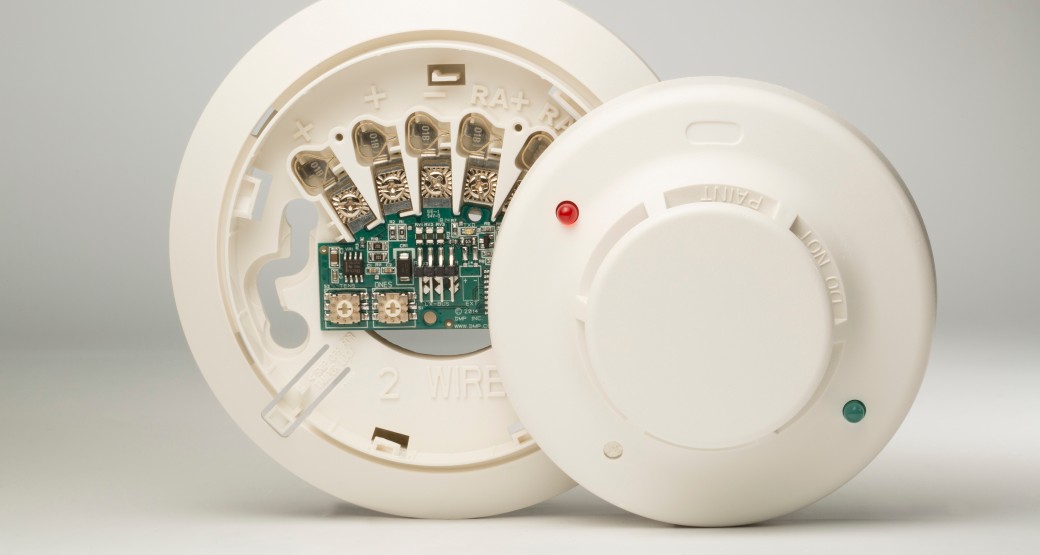While their importance is widely known, smoke and carbon monoxide detectors often become afterthoughts once installed. More thought into how long smoke and carbon monoxide detectors last should be given after that initial step.
Typical homeowners will put the detectors up, see them hanging there on the wall, and feel safe. They don’t give them a second thought — except for those annoying times the low battery chirp goes off in the middle of the night.
But these devices are not to be ignored. Smoke and carbon monoxide detectors save lives.
According to the National Fire Protection Association (NFPA), when working smoke alarms are present in your home, the risk of dying in a home fire is cut by 60 percent. Roughly three out of five fire deaths happen in homes with either no smoke alarms or no working smoke alarms. More than one-third (38 percent) of home fire deaths result from fires in which no smoke alarms are present.
Carbon monoxide is equally, if not more, dangerous. The Centers for Disease Control and Prevention (CDC) reports that over 400 Americans die from unintentional CO poisoning not linked to fires every year, more than 100,000 visit the emergency room, and more than 14,000 are hospitalized.
A common thread in a vast majority of those injuries and deaths is malfunctioning smoke and carbon monoxide detectors, and more often than not, the malfunction is due to missing, disconnected, or dead batteries.
The bottom line is smoke and carbon monoxide detectors are not “set it and forget it” devices. You need to stay on top of them and periodically check that they’re working properly.
Here’s what else you need to know.
We Put It All Together: ProTech Security is a proven, and premier, custom security integrator. Learn more about us in this video.
The Basics
There are various smoke and carbon monoxide detectors on the market, from basic models to more modern units that feature digital displays and are interconnected with every other unit in the house. No matter what model you choose, MAKE SURE THE BATTERIES ARE WORKING!
Test your smoke detectors monthly and if they’re battery-operated, you need to change those batteries at least once a year. Many people change their smoke detector batteries on New Year’s Day or some other holiday to help them remember. Carbon monoxide detector batteries need to be replaced every six months (a great time to do this is during daylight saving time when you’re turning your clocks back or forward). When replacing the batteries, vacuum the inside of the detectors to remove dirt, dust, and debris, which can interfere with the working components.
Install smoke detectors on every floor of your home (including attics and basements), in each bedroom, and outside of each bedroom area. Put carbon monoxide detectors on every floor, as well, and near, but not inside, an attached garage. Be careful where you place them, though. Keep carbon monoxide detectors out of direct sunlight, and at least five feet away from appliances and 20 feet away from any fuel-burning heat source. Also avoid areas with high humidity (shower, dishwasher), extreme heat or cold (attics, crawlspaces), and blowing air (vents, returns, and even ceiling fans).
Consider installing heat detectors in places like your garage and kitchen. Heat detectors are designed to respond to a fire, but not smoke. Using heat detectors instead of smoke detectors should help reduce false alarms from things like cooking.
The Lifespan of Smoke and Carbon Monoxide Detectors
Most smoke alarms have a lifespan of eight to 10 years — with the proper practice of replacing the batteries every year. A smoke detector with a lithium battery or a hard-wired smoke detector can last 10 years, at which time you would just replace the whole unit.
Carbon monoxide detectors last between five and seven years. The recommendation is to replace them every five years because their ability to detect carbon monoxide is questionable after that point.
A Better Way
To protect your home and family, you need to have, at the very least, basic, stand-alone smoke and carbon monoxide detectors throughout your home — it’s a necessity. But if you want to get even more protection, with monitoring and automatic notifications to the fire department and other first responders, a home security system is a great option.
With today’s home security systems, you can remotely monitor the presence of fire, smoke, or carbon monoxide and be alerted well before anything gets out of hand. The fire department will also be dispatched in the event of an alarm, even if you are not home to report the incident.
When it comes to the safety of your family and your home, anything less than constant and accurate residential fire detection and smoke monitoring just won’t cut it. A custom-designed fire system will monitor and alert you to any potential dangers and create time for everyone in your home to get away from the danger.
Trust ProTech Security for Complete Home Security
At ProTech Security, we have a strong history of experience, innovation, and customer service. The ProTech Security Advantage means more than 40 years of service in Northeast Ohio and a strong commitment to providing quality, cost-effective protection for homes, businesses, educational institutions, and government facilities. To see what ProTech Security can do for you, contact us today.



